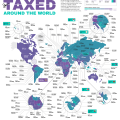Starting a business in the Philippines requires understanding its unique business laws. First and foremost, registering your business is crucial. The Securities and Exchange Commission (SEC) is the primary body for corporate registration. However, sole proprietorships register with the Department of Trade and Industry (DTI). Remember, registration is not just a formality; it’s a legal necessity.
Post-registration, the Bureau of Internal Revenue is your next stop. Here’s a reality check: Philippine tax laws are complex. You’ll deal with various taxes, from income tax to value-added tax. A common mistake is underestimating this complexity.
Don’t fall into this trap. Understand your tax obligations from the start. It’s not just about paying taxes; it’s about understanding how these taxes affect your business operations and growth.
Compliance with Local Government Units
Local Government Units have their own sets of rules. It’s not just about national laws. Each city or municipality can have different business permit requirements. This can be frustrating. But it’s essential to comply. Non-compliance can lead to unnecessary penalties or, worse, business closure. When in doubt, consult local authorities. They know their rules best.
Understanding labour laws is non-negotiable. The Philippines is strict about employee rights. Minimum wage, benefits, and proper work conditions are not just ethical; they’re legal requirements. Neglecting these can lead to serious legal consequences. Treat your employees well, not just because it’s right, but also because the law demands it.
Contractual Obligations
Contracts in the Philippines are sacred. Whether with employees, suppliers, or clients, ensure your contracts are clear and legally binding. Ambiguity in contracts can be a business’s downfall. Be explicit about terms and conditions. This protects both parties and prevents future legal battles.
The Intellectual Property Code of the Philippines is a key law. If your business involves unique products or services, protect them. Intellectual property theft is real. Secure your trademarks, patents, or copyrights. It’s not just about protecting ideas; it’s about safeguarding your business’s future.
Consumer Protection
Consumer rights are a big deal. The Consumer Act of the Philippines ensures businesses don’t exploit consumers. This means being transparent about your products or services. Misleading customers can attract legal action. Be honest in your dealings. It builds trust and keeps you on the right side of the law.
Environmental laws are often overlooked. But in the Philippines, non-compliance can be costly. If your business has environmental impacts, you must adhere to the Clean Air Act, Clean Water Act, and other environmental legislation. It’s not just about avoiding fines; it’s about being a responsible business in the community.
Data Privacy and Protection
In an age where data is king, the Philippines’ Data Privacy Act is critical. If your business handles personal information, you must ensure its protection. Data breaches can lead to legal nightmares. Take data privacy seriously. It’s not just good practice; it’s a legal obligation.
The Anti-Dummy Law prohibits foreigners from intervening in nationalized and partly nationalized areas of the economy. If you’re a foreign investor, understand this law thoroughly. It’s tricky and often misunderstood. Missteps here can lead to significant legal problems.
Compliance with Anti-Money Laundering Act
The Anti-Money Laundering Act is another critical aspect. It’s not just for financial institutions. As a business owner, understanding and complying with AMLA is vital. Ignorance is not an excuse. Ensure your business is not inadvertently used for money laundering. This is especially crucial for businesses with significant cash transactions.
Some industries have specific laws. For instance, the banking sector is governed by the General Banking Law, while the insurance sector has the Insurance Code. Know the laws specific to your industry. It can be the difference between success and failure.
Understanding business laws in the Philippines is not just about legal compliance; it’s about laying a strong foundation for your business. It’s a complex landscape, but navigating it successfully can lead to sustainable growth and success.
Stay informed, seek legal advice when needed, and always prioritize legal compliance to ensure your business thrives in the Philippines’ dynamic market.
Author: Alistair Vigier is the CEO of ClearwayLaw.com, a company that connects people with over one million lawyers.






